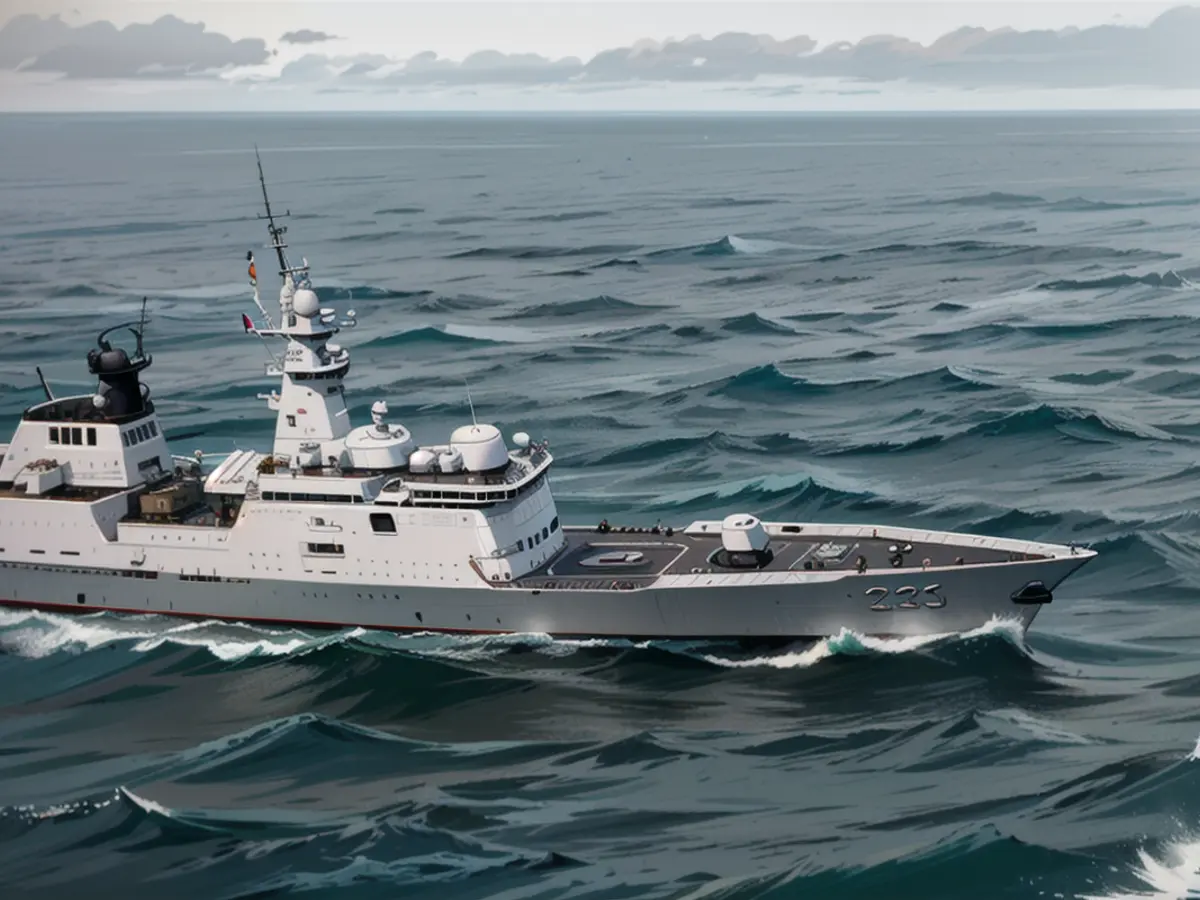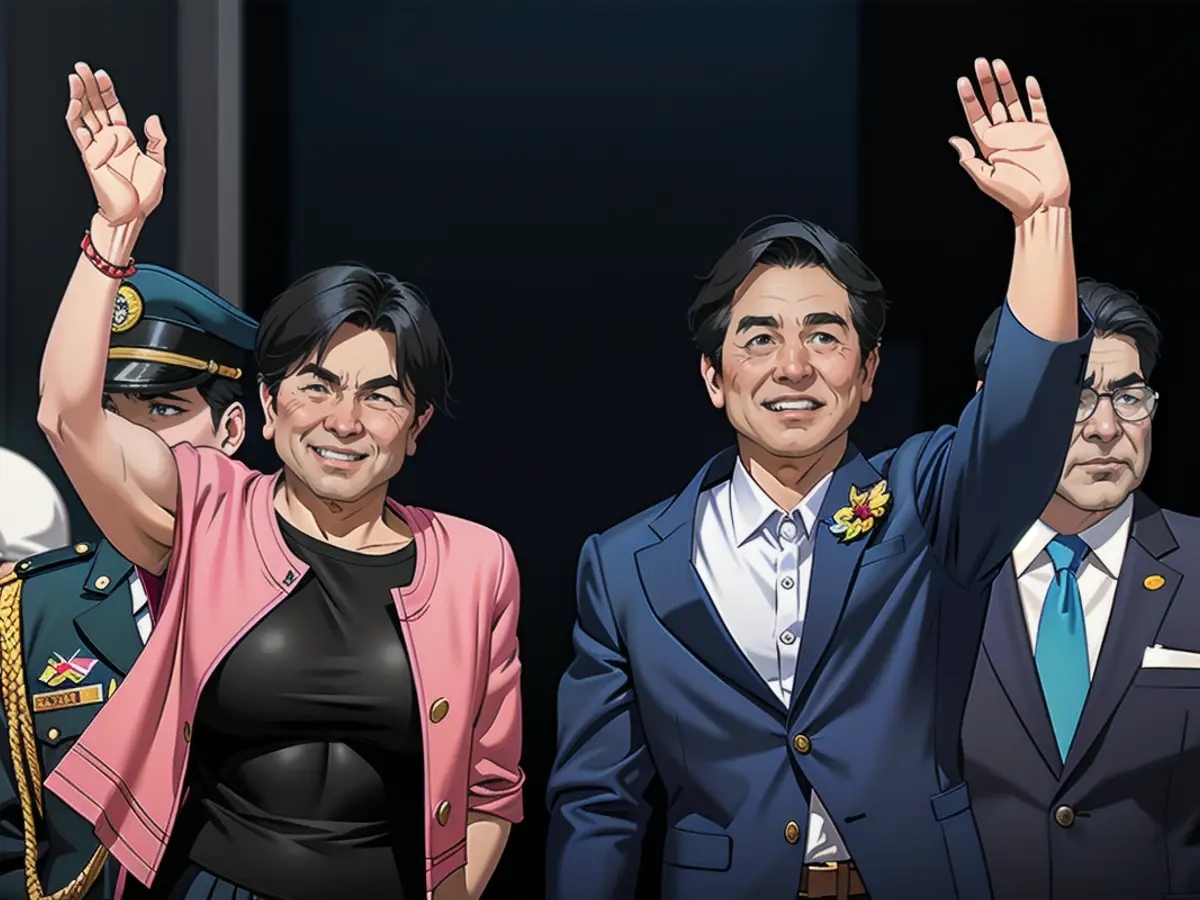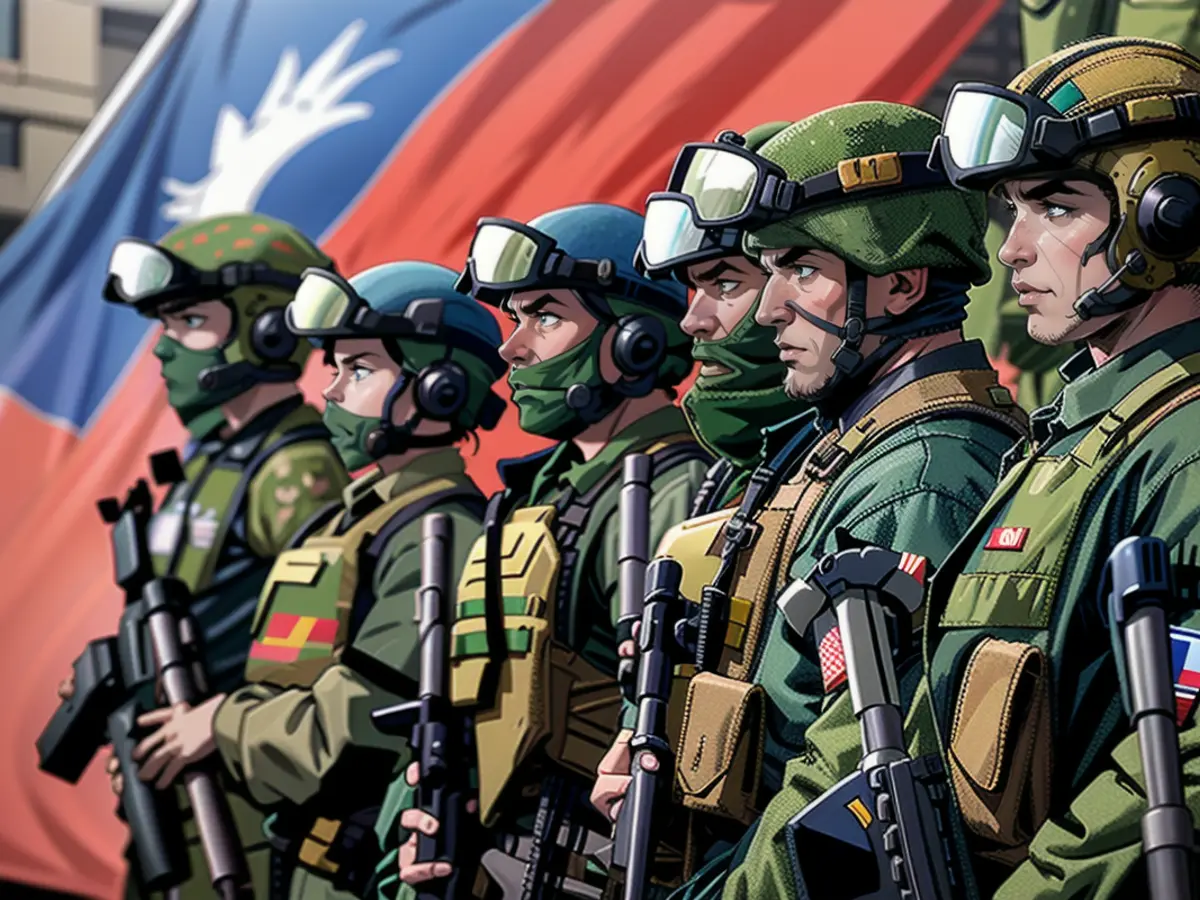China conducts fresh military drills surrounding Taiwan; what prompts this action?
Exercises started early on Thursday in China, labeling it as a punishment for "separatist acts." The escalation comes in light of the election and inauguration of Taiwan's self-governing island's new President Lai Ching-te. Despite the strained relationships between the two sides in recent years, this move is a significant challenge for Taiwan's newly-elected leader whose party advocates for democracy while facing threats from their authoritarian neighbor.
The Chinese Communist Party believes that Taiwan is part of its territory even without having controlled it. They have also stated that they will take the island, even if they have to use force. Under Chinese leader Xi Jinping, China has become more aggressive.
Here is a breakdown of the situation:
What's happening with the drills?
The Eastern Theater Command of the Chinese People's Liberation Army (PLA) carried out joint military exercises involving the army, navy, air force, and rocket force in areas surrounding Taiwan early Thursday morning.
These drills are taking place in the Taiwan Strait, a narrow body of water separating Taiwan from the mainland, as well as north, south, and east of Taiwan. They're also occurring near Taiwan's outlying islands like Kinmen, Matsu, Wuqiu, and Dongyin, which are located just off China's southeastern coast.
Colonel Li Xi, the PLA's spokesperson, mentioned that the exercises are a "strong punishment for the separatist acts of Taiwan independence forces and a serious warning against interference and provocation by external forces."
Mainland China is giving this drill a lot of media coverage and even livestreamed it on CCTV. The military has also posted images of its vessels on social media, which was widely shared on China's Twitter-like platform, Weibo.
Taiwan's Defense Ministry confirmed their response to China's drills by deploying naval, air, and land forces. They also regretted the "irrational provocations and actions that undermine regional peace and stability."
The Taiwanese presidential office released a statement expressing their confidence and capability in defending national security. They accused China of "using unilateral military provocation to threaten Taiwan's democracy and freedom."
What triggered this?
The most apparent reason for this escalation was Lai's inauguration on Monday.
Lai's ruling Democratic Progressive Party (DPP) views Taiwan as a self-sovereign nation with a distinct Taiwanese identity. They believe in Taiwan's independence, which conflicts with Beijing's stance that Taiwan is part of China's territory.
When Taiwan held its elections in January, Beijing warned that if Lai won, it would worsen the situation and create conflict. Voters ignored these warnings, and the DPP was reelected for a third term. While two opposition parties that favor closer ties with China now have a majority in the parliament, Lai has continued to insist on Taiwan's right to make its own decisions.
Beijing has an unforgiving attitude towards Lai due to his earlier stance on supporting Taiwan independence and his previous refusals to engage in negotiations.
After taking office, Lai declared that an "era of glorious Taiwan democracy has arrived," vowing to defend its sovereignty and urging Beijing to desist from intimidating the island and let its people decide their future.

What's the relationship between China and Taiwan?
The Chinese Civil War ended when the Chinese Communist Party (CCP) took power in the mainland in 1949, establishing the People's Republic of China (PRC) in Beijing, while the defeated Nationalist Party fled to Taiwan, making Taipei the seat of its Republic of China (ROC) government.
Both sides claimed to be the sole authority of the entire Chinese territory. Taiwan, today, operates as a vibrant democracy with its military, currency, constitution, and elected government.
However, it's not recognized as an independent nation by most governments globally. Over time, Taiwan has become more isolated diplomatically with fewer nations recognizing its government. However, its unofficial diplomatic ties with numerous Western countries have strengthened in recent years, partly due to China's aggressive posturing.
Under Xi's leadership, China has become more assertive and authoritarian. The CCP has cut official communication with Taiwan since the DPP took power in 2016 and intensified economic, military, and diplomatic pressure on the island.
At the same time, connections between Taipei and Washington have grown stronger, with increased weapon sales and higher-level political cooperation under Lai's popular predecessor Tsai Ing-wen. This has made Beijing extremely angry, causing them to intensify their efforts to put pressure on Taiwan and worsening cross-strait relations.
How does the US fit into this?
The US switched diplomatic recognition from Taipei to Beijing in 1979 but has been walking a fine line since then.
In what's known as the "One China" policy, the United States recognizes the People's Republic of China as the only legitimate Chinese government; it also supports Beijing's stance that Taiwan is part of China, though they have never accepted the Chinese Communist Party's claim of sovereignty over the island.
The United States maintains unofficial links with Taiwan, which have become more robust in recent years. They are obliged by law to help Taiwan protect itself, and provide the island with defensive tools.
Politicians from the US often travel to Taiwan and have supported bills to fortify American support for the island and its military defenses.
However, the US has always been purposefully ambiguous about whether it would come to Taiwan's defense in the event of a Chinese invasion.
In light of the presidential election in Taiwan earlier this year, the US sent a bipartisan delegation to the island, where they met with Lai and Tsai and assured them that US support for Taiwan will remain unchanged, regardless of the outcome of the upcoming US election.
On Tuesday, Beijing announced sanctions against former US House Representative Mike Gallagher, who led that delegation, citing his "statements and actions" that "interfere" in China's internal affairs.

Read also:
- This will change in December
- Dikes withstand water masses so far - Scholz holds out the prospect of help
- Fireworks and parties ring in 2024 - turn of the year overshadowed by conflicts
- Attacks on ships in the Red Sea: shipping companies avoid important trade route
The escalation of military exercises by China around Taiwan is a significant challenge for Taiwan's newly-elected President Lai Ching-te, whose party advocates for democracy and faces threats from their authoritarian neighbor in Asia. The drills are taking place in areas surrounding Taiwan, including the Taiwan Strait and near Taiwan's outlying islands, and are being seen as a "strong punishment" by China for acts perceived as promoting Taiwanese independence.
Source: edition.cnn.com







